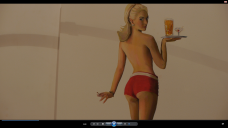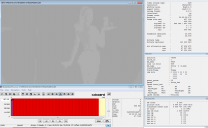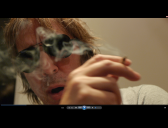
-
@thepalalias I love when I am reading a thread and think of a question, and it is answered before I can ask it.. well this time you answered two or three of my questions and even gave a response I was going to give. So the questions were about if other cameras have more precise film speed control. I know it is probably beyond a hack or patch, but it sure would be nice on our little GH2. As I mentioned before here in tokyo the sheer volume of lights makes it very hard to avoid all flicker in some shots simply because there is bound to be one dying, and this essentially gives off two frequencies from one light, the actual frequency and then the flicker frequency (this is just a personal observation, not science obviously). The other question I had was regarding strange light blobs I see sometimes when catching certain angles of light, and I now suspect they are comas as you described them, but I will post a little test I did to show them soon.
Now I do have one hypothesis/question though regarding the shadow flicker mentioned by MisterBink, because I have seen this allot here. Is it possible this is from background radiation? If memory serves me static you see in a cameras sensor when you turn it to near black or even on a tv monitor is actually radiation, and basically this is how radio telescopes find stars... so I thought maybe this makes sense, or maybe the technology is different. Just seems I see allot of this around these radioactive parts. Sorry if that's a bit hard to read, I did some drinking last night = P
-
@thepalalias I just failed to type it's right form. Which I realized later that day from u r explanation. Until that moment I felt its just sht. It's ok man I was just kidding ,.. Leave it ,... From MM it's all folks,... ;)
-
@mee - I found the blue colour blobs to be as a result of ExTele mode in badly lit situations. So depending on what you need to shoot, I recommend either disabling ExTele or making sure the area is well lit... Alternatively, if you shoot as flat as possible and grade later on, you can crush the darker areas in post, and that tends to get rid of the shadow flicker...
-
Hi guys, lots of recent settings so naturally I'm getting a little confused again.
I'm currently in the final stages of the pre-production for my short film which is set in 1951 in South Korea near the North Korean boarder and tells the story of a wounded British soldier encountering a crazy friend or foe as he makes his way back to his base.
The main locations for the scenes are as follows; 1) Inside the woods/forrest - Day 2) Outside an old abandoned hut - Day 3) Outside old abandoned house (with camp fire) - Night 3) Inside the old abandoned hut - Day
I was thinking of using Driftwoods Sedna A AQ1 for all the day stuff and then Canis Majoris Night for the Night stuff.
I want to keep the maximum quality with the fine film grain and the least ugly noise.
What is the optimum iso for the GH2. I've read 320 but I've also read 640? Does anyone have any feedback form experience?
I have the Voigtlander 25mm f0.95, SLR Magic 12mm f1.6, Zeiss ZF 50mm f1.4 and my friend will be bringing his Nikon lenses all f2, 14mm, 28mm 35mm 50mm 85mm 105mm.
Thanks guys
-
@thougts2uk CM Night is pretty solid, even for well-lit scenes. I do still use Sedna A AQ1 for outdoor event shoots and run-and-gun type work, just because I know it is consistently very high quality. But most of the time now when I'm shooting controlled scenes or in low-light situations, I use CM Night. The noise profile is noticeably better than any of the other patches, and it just renders colors so beautifully. Almost looks like 4:2:2 at times.
The lower ISO, the better, as long as you remember to avoid the noise bug by clicking down one line, across, and up to select the one you want. With CM night I find that up to 2,500 is fine without noise reduction in post, and really even 12,500 is useable with noise reduction in post.
-
@thougts2uk The optimum? I LOVE 320 ISO. And it seems to be the fav' of a lot of GH2 users. But experiment out there for sure. It just seems to have the right balance beneficial to the grain produced by my Intra settings.
CM Night is exceptional. Yes, it can be used daytime but it will top out luminance on bright scenes. I personally love CM Day pm, but Day AM (going thru final testing this week) is also looking killer. As an all rounder, like Ive said many times, Sedna A AQ1 or Q20 produces beautiful grain (similar to Night) without the extra brightness.
Shoot test scenes during the day - and BE HAPPY wiith your results BEFORE filming. One good looking setting for one person is not the same for another. So test, test, test and try and simulate the conditions youre going to be filming. And try out a bit of grading first. GOP1 Intra grading goes further than anything else out there. Believe me.
In summary, youre safe in the knowledge that all my Canis and Sedna settings work very well indeed - supported by many favourable reviews from personal-view users and outside sources.
Alternatively, Quantum 9B Updated is just Sedna - maxed out - but will perform excellently in studio lit scenes. Mysteron gives a lot of bang and pzazz in the chroma/lumiinance (a precursor to the Canis settings) and is also a good all rounder.
I promise you all the above settings will look bloody amazing on the Voightlander and SLR magic lenses. And that Zeiss f1.4 ZF (Distagon?) is fucking marvelous. I used that all the time when I was filming on EX3s and Letus Extremes - brilliant lens. The Nikons your mate is bringing is very good assurance.
Really looking forward to seeing your final edit.
It really is horses for courses my friend. :-)
Nick
PS If it helps, I'm using ALL Canis Majoris Settings for my upcoming musical film ' Swim to Land' starring the stunning Arabella Gibbins.
-
@Driftwood just to make sure I understand this correctly, the current Quantum 9B is the same as Sedna but better?
-
@Sangye Quantum 9B upgraded is using the Sedna matrix - the Auto Quant has been left at 3 and 4 if I remember like the old version. This means in lesser detailed scenes like facial shots, it will attempt very low Q. Like the old Q9B did, this time using the Sedna matrix (designed for low quant). However, the downside: on highly detailed scenes the Q will be unbalanced - starting low and then going very high the further down the picture as it runs out of bitrate (this doesnt happen all the time mind). Whereas Sedna A AQ1 or Q20 is much better balanced achieving a more even & consistent targetted Q throughout the picture.
-
Tonight (5/7/12) 9pm Channel 4 in the UK. Michael Johnson: Survival of the Fastest. I shot most of it with a Canon XF305 but did quite a lot of B-Roll on the GH2 with CM Day (HBR). See if you can spot the difference.
-
@edgenumbers Nice. Ill be watching :-) Tell us a bit more about how you used the GH2 it would be interesting to pv users.
-
Well I have been playing around with the GH2 ever since 25p raised its head. I was amazed how quickly you guys got to work on the hack (I have donated :) ). None of them seemed to work motion wise for me until driftwoods Canis Majoris settings. For a while now I have used a Canon 7D as a B-cam but the moire!! and to be honest it always looks a bit soft. Broadcast TV seems to constantly struggle with its budgets, this was shot in 8 days by me and I did sound as well. Having a GH2 always on hand is a big bonus, jib shots, car shots, etc. I like depth of field but I like to use it as part of the story telling not just for the sake of it, to be honest just getting the moment is often more important. I haven't seen the final cut, it's been pretty quick turn around. It was edited on Avid and the post house haven't had any probs using the GH2 footage. As to how much of it is in tonights prog we will have to wait and see. I am really interested to see this stuff go through a pro post production process and then TX.
The setting that seemed to match the XF305 best was smooth -2,-2,-2,-2 although I think I did end up with sharpness on -1. I used CM DAY PM all the time. Didn't use any 720p everything was in HBR (25p) mode. Mainly GV's and some images to cover a story that MJ discovers and reads. Lens wise I used a stock 14-42, 200mm f2.8 canon FD, 24mm f2 Canon fd and a 14-50 f2.8 Leica.
I'll let you know what I think after the show is aired tonight. You comments appreciated too. @driftwood I am loving Cluster 6, would love to see a CM day PM Crossfire setting.
-
@edgenumbers Very enjoyable documentary about Michael Johnson's heritage :-) Extremely interesting.. TBH I didn't really pixel peep as the programme was so engrossing. So maybe now you can throw some light as to which shots the editor & colourist used?
For those who haven't seen it, it's here on 4oD (its up for another month);-
http://www.channel4.com/programmes/michael-johnson-survival-of-the-fastest/4od#3379020
-
@cbrandin Yeah, Its the quantisers - shows you where the Quantisation is happening. Lighter area is lowest Quant Param. In the above image scenario the light is all QP'd at 16, the darker areas 17 to 18. Its a bit different to CodecVisa but all the same thing.
In the macroblock sizes window, lighter shaded macroblocks are using more bits/darker less.
The second graphic below depicts the transform coeffecients window overlaying a look at the predicted 'grey' areas.
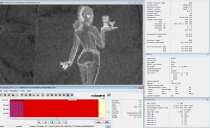
 canis majoris with 'cbrandin smooth cinema' matrix - streameye pro - macroblock sizes look.png1411 x 861 - 106K
canis majoris with 'cbrandin smooth cinema' matrix - streameye pro - macroblock sizes look.png1411 x 861 - 106K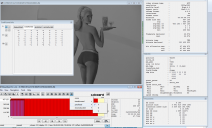
 canis majoris with 'cbrandin smooth cinema' matrix - streameye pro - prediction and transform coeffecients charting.png1443 x 871 - 245K
canis majoris with 'cbrandin smooth cinema' matrix - streameye pro - prediction and transform coeffecients charting.png1443 x 871 - 245K -
I zoomed in on the picture you posted. Actually, the detail is quite a bit better than I expected. This is looking pretty good... I think this matrix is doing with coding what you get with some of the prime lenses (e.g. Canon 50mm 1.4). Maybe it will remove some of the harshness people complain about with the Panasonic lenses.
-
@cbrandin Chris, I'm extremely impressed with your new matrix, 'CB 444 Cinema Matrix', with my new Canis Majoris settings. Once again, you prove yourself with calculations that bring the VERY best out of the GH2. I bow to you. This image I have just shot is about the best you can get out of the GH2 - need to shoot some more stuff outside. It frightened the living shit out of my lady friend! :-) Congrats.
PS We're still just 'under ceiling' so it will hold up on closeups. Have a look at this blowup. Not very forgiving Miss Driftwood thinks. ;-)
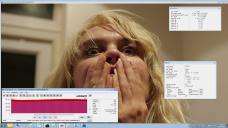
 canis majoris with 'cbrandin 444 cinema' matrix - image2.png1920 x 1080 - 3M
canis majoris with 'cbrandin 444 cinema' matrix - image2.png1920 x 1080 - 3M -
Some more images... including proof of calcs - the very first frame (before its supposed to settle) at Q18 min/max. Anyone should have a go at grading these - they really push the boundaries of Intra on a par with 4:4:4. Nokton 0.95 25mm.
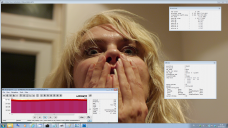
 canis majoris with 'cbrandin 444 cinema' matrix - image2.png1920 x 1080 - 3M
canis majoris with 'cbrandin 444 cinema' matrix - image2.png1920 x 1080 - 3M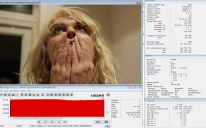
 canis majoris with 'cbrandin 444 cinema' matrix - image.png1397 x 867 - 1M
canis majoris with 'cbrandin 444 cinema' matrix - image.png1397 x 867 - 1M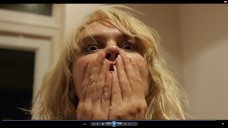
 canis majoris with 'cbrandin 444 cinema' matrix - image3.png1920 x 1080 - 2M
canis majoris with 'cbrandin 444 cinema' matrix - image3.png1920 x 1080 - 2M -
Ok... I think I may have finally been convinced to invest money in those top of the line sandisks! :)
@driftwood is Chris's matrix now included in the Canis patches or ?
Howdy, Stranger!
It looks like you're new here. If you want to get involved, click one of these buttons!
Categories
- Topics List23,983
- Blog5,725
- General and News1,354
- Hacks and Patches1,153
- ↳ Top Settings33
- ↳ Beginners255
- ↳ Archives402
- ↳ Hacks News and Development56
- Cameras2,362
- ↳ Panasonic991
- ↳ Canon118
- ↳ Sony156
- ↳ Nikon96
- ↳ Pentax and Samsung70
- ↳ Olympus and Fujifilm100
- ↳ Compacts and Camcorders300
- ↳ Smartphones for video97
- ↳ Pro Video Cameras191
- ↳ BlackMagic and other raw cameras116
- Skill1,961
- ↳ Business and distribution66
- ↳ Preparation, scripts and legal38
- ↳ Art149
- ↳ Import, Convert, Exporting291
- ↳ Editors191
- ↳ Effects and stunts115
- ↳ Color grading197
- ↳ Sound and Music280
- ↳ Lighting96
- ↳ Software and storage tips267
- Gear5,416
- ↳ Filters, Adapters, Matte boxes344
- ↳ Lenses1,579
- ↳ Follow focus and gears93
- ↳ Sound498
- ↳ Lighting gear314
- ↳ Camera movement230
- ↳ Gimbals and copters302
- ↳ Rigs and related stuff273
- ↳ Power solutions83
- ↳ Monitors and viewfinders340
- ↳ Tripods and fluid heads139
- ↳ Storage286
- ↳ Computers and studio gear560
- ↳ VR and 3D248
- Showcase1,859
- Marketplace2,834
- Offtopic1,319



